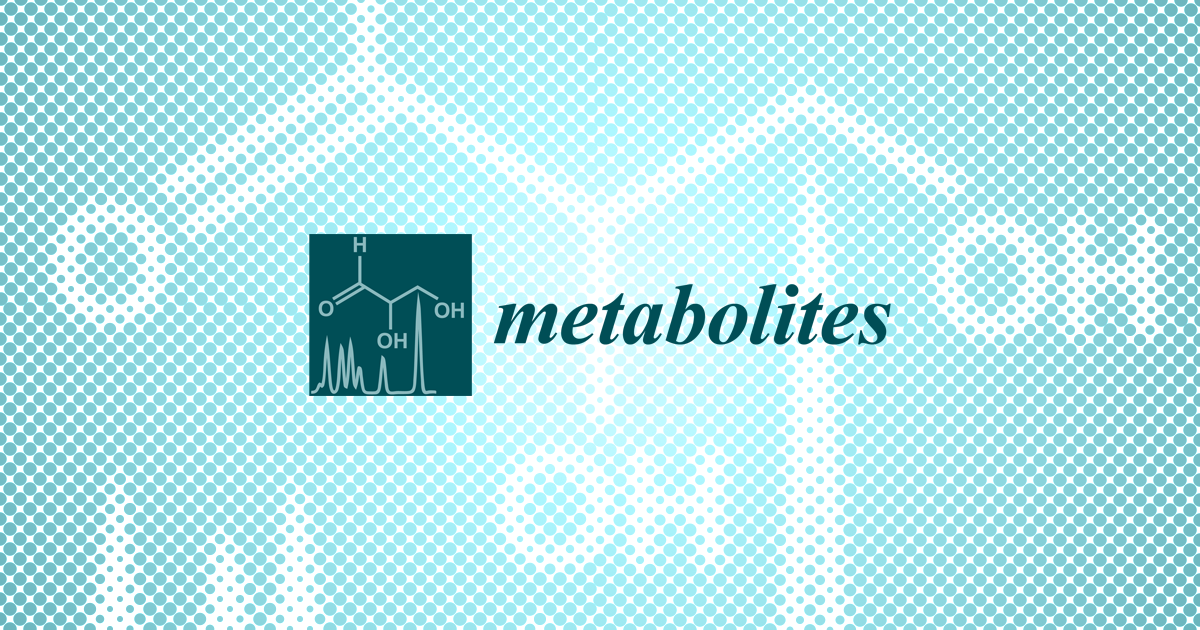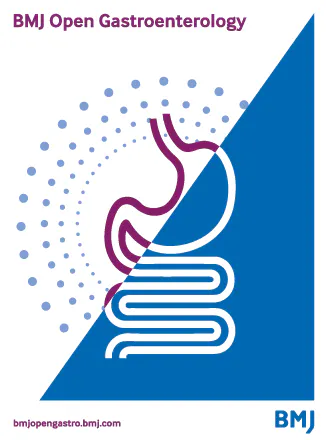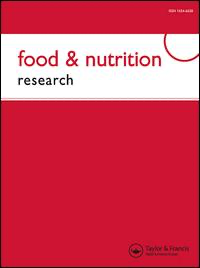Bicarbonate
How to submit an article:
- Registered users can submit any published journal article that has a unique DOI (Digital Object Identifier) name or link to Research Hub.
- For example, you can paste the full DOI link:
https://doi.org/10.1109/5.771073or just the DOI name:10.1109/5.771073into the field above and click submit. - The person who is first to submit a valid article to Research Hub will forever be credited for it, and every article submission earns you +6 Research Points.
Published research studies are articles that present the findings of original research that has undergone a peer-review process and has been made publicly available in scholarly journals, books or other media.

Supplementing Low-Sodium Bicarbonate–Calcic (Lete)® Water: Effects in Women on Bone and Systemic Metabolism
2023 Oct 24 Metabolites Marino C, Pagano I, Castaldo G, Grimaldi M, D’Elia M, Santoro A, et al.
Clinical Study Mineral Water Osteoporosis MenopauseConsuming bicarbonate-calcium mineral water, low in sodium, can help manage calcium imbalance and support bone health in perimenopausal women.

Heartburn relief with bicarbonate-rich mineral water: results of the randomised, placebo-controlled phase-III trial STOMACH STILL
2023 Feb BMJ Open Gastroenterology Labenz J, Anschütz M, Walstab J, Wedemeyer RS, Wolters H, Schug B
Randomised Controlled Trial Mineral WaterBicarbonate-rich mineral water “Staatl. Fachingen STILL” significantly reduces heartburn more effectively than placebo, improving patients’ quality of life.

Just Drink a Glass of Water? Effects of Bicarbonate–Sulfate–Calcium–Magnesium Water on the Gut–Liver Axis
2022 Jun 28 Frontiers in Pharmacology Gravina AG, Romeo M, Pellegrino R, Tuccillo C, Federico A, Loguercio C
Fonte Essenziale water has beneficial effects on gastrointestinal hormone levels and the gut-liver axis in patients with NAFLD, but these effects are only observed during the period when the patients are drinking the water and are lost after discontinuation.
Clinical Study NAFLD
Natural Mineral Waters and Metabolic Syndrome: Insights From Obese Male and Female C57BL/6 Mice on Caloric Restriction
2022 May 24 Frontiers in Nutrition Narciso L, Martinelli A, Torriani F, Frassanito P, Bernardini R, Chiarotti F, et al.
Animal Study Metabolic Syndrome Mineral Water Cholesterol Blood SugarCertain natural mineral waters, when combined with a low-calorie diet, effectively reduce cholesterol and glucose levels in mice with metabolic syndrome.

Effects of mineral waters on acid–base status in healthy adults: results of a randomized trial
2019 Dec 03 Food & Nutrition Research Wasserfurth P, Schneider I, Ströhle A, Nebl J, Bitterlich N, Hahn A
Clinical Study Randomised Controlled Trial Mineral Water Bicarbonate Acid Base StatusDrinking at least 1.5 to 2 litres of bicarbonate-rich mineral water daily significantly reduces dietary acid load in healthy adults.
Research insights are moderated by the Research Hub team and offer an at-a-glance overview of interesting research findings.

2023 Metabolites
Consuming bicarbonate-calcium mineral water, low in sodium, can help manage calcium imbalance and support bone health in perimenopausal women.
Clinical Study Menopause Mineral Water Osteoporosis
Supplementing Low-Sodium Bicarbonate–Calcic (Lete)® Water: Effects in Women on Bone and Systemic Metabolism
Marino C, Pagano I, Castaldo G, Grimaldi M, D’Elia M, Santoro A, et al.

2023 BMJ Open Gastroenterology
Bicarbonate-rich mineral water “Staatl. Fachingen STILL” significantly reduces heartburn more effectively than placebo, improving patients’ quality of life.
Randomised Controlled Trial Mineral Water
Heartburn relief with bicarbonate-rich mineral water: results of the randomised, placebo-controlled phase-III trial STOMACH STILL
Labenz J, Anschütz M, Walstab J, Wedemeyer RS, Wolters H, Schug B

2022 Frontiers in Nutrition
Certain natural mineral waters, when combined with a low-calorie diet, effectively reduce cholesterol and glucose levels in mice with metabolic syndrome.
Animal Study Blood Sugar Cholesterol Metabolic Syndrome Mineral Water
Natural Mineral Waters and Metabolic Syndrome: Insights From Obese Male and Female C57BL/6 Mice on Caloric Restriction
Narciso L, Martinelli A, Torriani F, Frassanito P, Bernardini R, Chiarotti F, et al.

2019 Food & Nutrition Research
Drinking at least 1.5 to 2 litres of bicarbonate-rich mineral water daily significantly reduces dietary acid load in healthy adults.
Clinical Study Acid Base Status Mineral Water
Effects of mineral waters on acid–base status in healthy adults: results of a randomized trial
Wasserfurth P, Schneider I, Ströhle A, Nebl J, Bitterlich N, Hahn A

2016 Nutrients
Drinking 1litre of mineral water daily with meals can reduce risk factors for heart and metabolic diseases, particularly when replacing sugary drinks.
Clinical Study Blood Sugar Cholesterol LDL Mineral Water
An Intervention with Mineral Water Decreases Cardiometabolic Risk Biomarkers. A Crossover, Randomised, Controlled Trial with Two Mineral Waters in Moderately Hypercholesterolaemic Adults
Toxqui L, Vaquero M
Review Articles
Review articles summarise and critically evaluate the current state of research on a specific topic or field by synthesising multiple primary research studies.
Clinical Trials
Clinical trials are research studies that involve people and are conducted to evaluate the safety and efficacy of new treatments or interventions, such as drugs, medical devices, or behavioural therapies.

Heartburn relief with bicarbonate-rich mineral water: results of the randomised, placebo-controlled phase-III trial STOMACH STILL
2023 Feb BMJ Open Gastroenterology Labenz J, Anschütz M, Walstab J, Wedemeyer RS, Wolters H, Schug B
Randomised Controlled Trial Mineral WaterBicarbonate-rich mineral water “Staatl. Fachingen STILL” significantly reduces heartburn more effectively than placebo, improving patients’ quality of life.

Effects of mineral waters on acid–base status in healthy adults: results of a randomized trial
2019 Dec 03 Food & Nutrition Research Wasserfurth P, Schneider I, Ströhle A, Nebl J, Bitterlich N, Hahn A
Clinical Study Randomised Controlled Trial Mineral Water Bicarbonate Acid Base StatusDrinking at least 1.5 to 2 litres of bicarbonate-rich mineral water daily significantly reduces dietary acid load in healthy adults.

An Intervention with Mineral Water Decreases Cardiometabolic Risk Biomarkers. A Crossover, Randomised, Controlled Trial with Two Mineral Waters in Moderately Hypercholesterolaemic Adults
2016 Jun 28 Nutrients Toxqui L, Vaquero M
Clinical Study Randomised Controlled Trial LDL Cholesterol Mineral Water Blood SugarDrinking 1litre of mineral water daily with meals can reduce risk factors for heart and metabolic diseases, particularly when replacing sugary drinks.
Study Protocols
Published study protocols are detailed plans that outline the objectives, methodology, statistical analyses, and organisation of a research study that have been made publicly available for others to review and use as a reference.
Presentation Slides

Clinical Study
Consuming bicarbonate-calcium mineral water, low in sodium, can help manage calcium imbalance and support bone health in perimenopausal women.
Marino C, Pagano I, Castaldo G, Grimaldi M, D’Elia M, Santoro A, Conte A, Molettieri P, Parisella C, Buonocore M, D’Ursi AM, Rastrelli L

Randomised Controlled Trial
Bicarbonate-rich mineral water “Staatl. Fachingen STILL” significantly reduces heartburn more effectively than placebo, improving patients’ quality of life.
Labenz J, Anschütz M, Walstab J, Wedemeyer RS, Wolters H, Schug B

Animal Study
Certain natural mineral waters, when combined with a low-calorie diet, effectively reduce cholesterol and glucose levels in mice with metabolic syndrome.
Narciso L, Martinelli A, Torriani F, Frassanito P, Bernardini R, Chiarotti F, Marianelli C

Clinical Study
Drinking at least 1.5 to 2 litres of bicarbonate-rich mineral water daily significantly reduces dietary acid load in healthy adults.
Wasserfurth P, Schneider I, Ströhle A, Nebl J, Bitterlich N, Hahn A

Clinical Study
Drinking 1litre of mineral water daily with meals can reduce risk factors for heart and metabolic diseases, particularly when replacing sugary drinks.
Toxqui L, Vaquero M
Executive Summary
Write an executive summary in the form of a blog article on the topic of "Research into Chinese medicine treatment for Bicarbonate" summarising the research below and using language that can be easily understood by patients and avoiding medical jargon using a professional and caring tone of voice.
Write an executive summary in the form of a blog article on the topic of "Researched Chinese medicine treatments for Bicarbonate" summarising the research below in an objective and easy to understand way, and using language that can be easily understood by patients. Group the article into Chinese medicine treatments first, followed by nutrition and other treatments. Avoid using medical jargon and use a professional and caring tone of voice.
Write me a concise but easy to understand executive summary on the topic of "Chinese medicine treatments for Bicarbonate" based on the following research that I will give you. Your summary should be 2 paragraphs long in Australian English spelling and include references to the studies.
A Clinical Study published in 2023 in the journal Metabolites found that Consuming bicarbonate-calcium mineral water, low in sodium, can help manage calcium imbalance and support bone health in perimenopausal women. The study involved 120 perimenopausal women who consumed 2 liters of a specific bicarbonate-calcium mineral water (Lete) daily for six months. This water was chosen because it is rich in calcium and bicarbonate but low in sodium. The study aimed to determine the impact of this water on bone health and overall metabolism. The participants’ urine and blood serum were analyzed using NMR-based metabolomic procedures. These analyses were conducted to assess the effects of the water not only on calcium metabolism but also on the broader systemic metabolism. The findings indicated that the Lete water effectively compensated for calcium dysmetabolism and supported bone health and integrity in perimenopausal women. While the study primarily focused on bone metabolism, it also provided insights into the potential system-wide metabolic effects of this specific type of mineral water. This suggests that such water could be a valuable dietary supplement for addressing calcium-related metabolic issues, particularly in perimenopausal women.
A Randomised Controlled Trial published in 2023 in the journal BMJ Open Gastroenterology found that Bicarbonate-rich mineral water “Staatl. Fachingen STILL” significantly reduces heartburn more effectively than placebo, improving patients’ quality of life. The STOMACH STILL trial, a multicentre, double-blind, randomized, placebo-controlled study, assessed the effectiveness of Staatl. Fachingen STILL mineral water in relieving heartburn. Adult patients with frequent heartburn episodes for at least six months, but without severe reflux oesophagitis, were recruited. They consumed 1.5 liters per day of either the mineral water (verum) or placebo for six weeks. Primary endpoint was a reduction of at least five points in the Reflux Disease Questionnaire score for heartburn. Secondary endpoints included overall symptom reduction, health-related quality of life measures (QOLRAD), rescue medication intake, and safety/tolerability. Of the 148 patients randomized, 143 completed the trial. The responder rate was significantly higher in the mineral water group (84.72%) compared to the placebo group (63.51%). Significant improvements were observed in the ‘heartburn’ dimension and overall Reflux Disease Questionnaire scores for the mineral water group. Additionally, three out of five Quality of Life in Reflux and Dyspepsia domains showed improvement: ‘food/drink problems,’ ‘emotional distress,’ and ‘vitality.’ The verum group also reported a decrease in rescue medication use. Only three patients experienced treatment-related adverse events. The study concluded that Staatl. Fachingen STILL mineral water is superior to placebo in relieving heartburn and enhancing health-related quality of life.
A Animal Study published in 2022 in the journal Frontiers in Nutrition found that Certain natural mineral waters, when combined with a low-calorie diet, effectively reduce cholesterol and glucose levels in mice with metabolic syndrome. The study involved 125 male and female C57BL/6 mice. Ten mice were kept as a healthy control group, fed a standard diet with tap water. The remaining 115 mice were fed a high-calorie diet (60% fat, 10% fructose in water) for four months to induce metabolic syndrome, followed by a two-month treatment phase with a low-calorie diet and various types of natural mineral water (NMW). The mice were divided into six treatment groups, each receiving a different NMW, and a control group receiving tap water. The study monitored body weight and blood biochemistry over six months. After four months on a high-calorie diet, both male and female mice developed obesity, high cholesterol, and high blood sugar, with males showing greater increases. During the treatment phase, NMWs rich in sulphate, magnesium, bicarbonate, and minimally mineralized water, along with a low-calorie diet, significantly lowered total cholesterol, HDL cholesterol, and glucose levels. Sex differences were observed during both the induction and treatment phases. These findings indicate that specific NMWs, in conjunction with a low-calorie diet, may help manage blood lipid and glucose levels in metabolic syndrome, although further research is needed to confirm these results in humans.
A Clinical Study published in 2019 in the journal Food & Nutrition Research found that Drinking at least 1.5 to 2 litres of bicarbonate-rich mineral water daily significantly reduces dietary acid load in healthy adults. The study was a single-centered, randomized trial involving 129 healthy men and women aged 18 to 75. Participants were assigned to consume 1,500–2,000 mL daily of one of four types of mineral water, varying in bicarbonate content and potential renal acid load (PRAL), for four weeks. The types were: low bicarbonate, high PRAL; medium-high bicarbonate, medium PRAL; high bicarbonate, low PRAL; and medium-high bicarbonate, low PRAL. Participants maintained their usual diets, and the primary measurement was net acid excretion (NAE) in 24-hour urine output. The study found that consuming the three types of mineral water with higher bicarbonate content (medium-high and high) and lower PRAL (medium and low) significantly decreased NAE values. The greatest reduction was seen with high bicarbonate, low PRAL water, indicating a substantial decrease in dietary acid load. This was also accompanied by a slight increase in serum bicarbonate levels in the groups consuming high and medium-high bicarbonate, low PRAL water.
A Clinical Study published in 2016 in the journal Nutrients found that Drinking 1litre of mineral water daily with meals can reduce risk factors for heart and metabolic diseases, particularly when replacing sugary drinks. This randomized-controlled crossover trial involved 64 adults with moderate hypercholesterolemia. Participants were assigned to consume 1 liter per day of either sodium-bicarbonated mineral water (BW) or control mineral water low in minerals (CW) alongside their main meals for eight weeks. This was followed by an eight-week washout period. The study measured various cardiometabolic risk biomarkers including blood lipids, glucose, insulin, aldosterone, urine pH, urinary electrolytes, blood pressure, body weight, and overall fluid, energy, and nutrient intake from diet and beverages. The intervention led to a decrease in total cholesterol, LDL cholesterol, and glucose levels, with a trend towards lower oxidized LDL. Apolipoprotein B increased, but there was no significant difference between the types of water consumed. The study also observed a decrease in energy and carbohydrate intake from beverages, attributed to a reduction in soft drink and fruit juice consumption. BW specifically increased urinary pH and reduced calcium/creatinine excretion, indicating a moderate alkalizing effect on the body, without impacting blood pressure. Overall, consuming 1 liter of mineral water daily appeared to reduce cardiometabolic risk biomarkers, likely due to the replacement of sugary beverages with water.
Moderation Tools
Topic
Sign In
Users not signed in are limited to viewing the 5 most recent items of content.